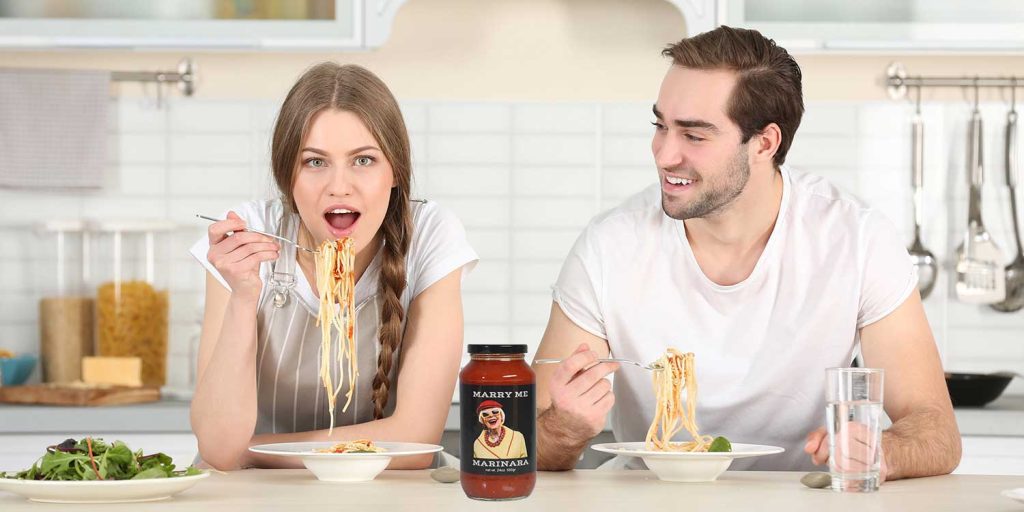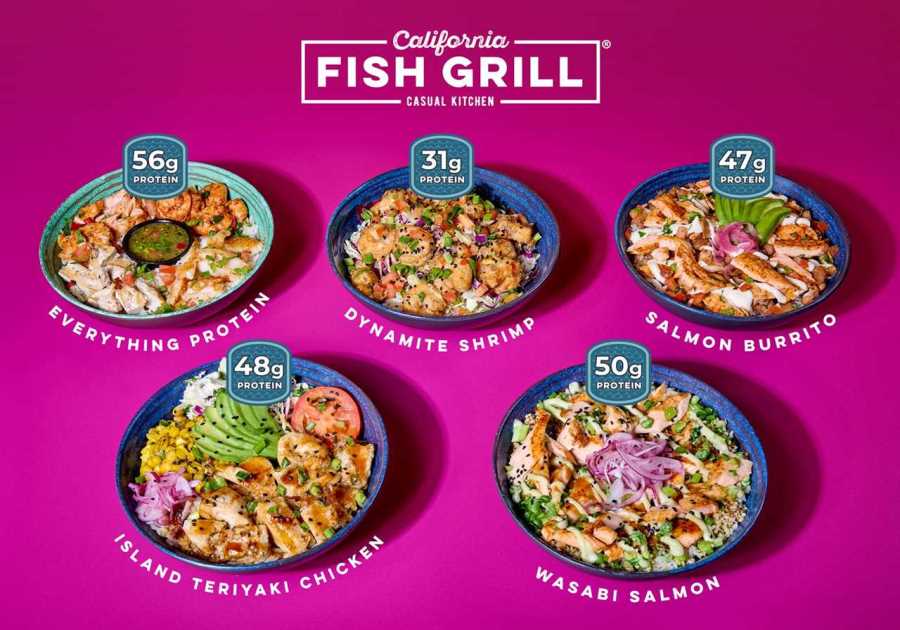Professional kitchens don’t mess around with subpar ingredients. Walk into any serious restaurant and you’ll find chefs who’ve got strong opinions about which jarred sauces actually deserve pantry space. The gourmet pasta sauce market’s exploded over the past decade—everyone’s promising restaurant-quality flavor without the hours of standing over a stove.
Here’s the thing though. Not all “gourmet” labels mean the same thing. Some brands lean heavily on marketing while cutting corners where it counts. Others deliver genuine quality but charge so much that a single jar costs more than a decent bottle of wine. Then there’s a rare breed that hits that sweet spot: legitimately excellent sauce at a price that won’t make you wince.
What Makes a Sauce Actually Gourmet
Look, before we get into specific brands, let’s talk about what “gourmet” actually means. The term gets thrown around like confetti in the food industry—often it just means “we used a fancier font on the label.” Real gourmet pasta sauce? You can spot it pretty easily once you know what to look for.
The ingredient list should be short and readable. When you see a paragraph of chemical compounds and preservatives, you’re looking at mass production, not artisan quality. Real gourmet sauces start with vine-ripened tomatoes as the first ingredient, followed by recognizable herbs, quality olive oil, and minimal additives. Water shouldn’t be hogging the top spots—and if corn syrup shows up anywhere, just walk away.
Then there’s how it’s made. Small-batch cooking makes a massive difference. Big commercial operations rush through production to pump out volume, which tanks the flavor. Artisan producers simmer their sauces slowly, letting flavors actually marry and develop. You can’t fake that patience, and honestly, your palate knows the difference right away.
Texture’s huge too. Premium sauces get this consistency that actually clings to pasta instead of sliding off like colored water. It’s not about dumping in thickeners—it comes from proper cooking technique and quality ingredients. The best sauces have body without feeling heavy or gloopy.
Chefs gravitate toward brands that deliver consistent results. When you’re running a professional kitchen, you need products that perform reliably every single time. Ina Garten’s built her whole reputation partly on the philosophy that “store-bought is fine” when the product deserves it. She’s been vocal about keeping Rao’s Marinara in her pantry, saying it saves hours without sacrificing quality. That’s not just some casual endorsement—this is someone who literally wrote the book on entertaining.
The Premium Tier: Where Quality Meets Price
Rao’s Homemade’s been dominating this conversation for years now. Founded back in 1896 at that legendary Rao’s restaurant in East Harlem, they eventually brought their restaurant recipe to grocery stores. Their success? Total commitment to Italian tomatoes, imported olive oil, and zero shortcuts. The sauce runs about eight to ten bucks for 24 ounces, which yeah, makes some people hesitate. But chefs consistently rate it at the top.
The texture just hits different than mass-market stuff. Open a jar of Rao’s and you smell actual tomatoes and fresh basil—not that generic “red sauce” smell cheaper brands give off. They’ve got over 30 varieties now, though the classic marinara’s still the star. Sales figures from 2022 showed Rao’s pulling in $580 million across their product line, heading toward a billion dollars. Those numbers don’t happen by accident.
Marry Me Marinara is a real stand out on quality but takes a quieter approach than most premium sauce brands—no celebrity chef co-signs, no elaborate origin story from a century-old restaurant. Just straightforward execution on the fundamentals. The sauce centers on vine-ripened tomatoes picked at peak freshness, organic herbs, and zero shortcuts like corn syrup or preservatives. It’s certified organic, though the brand doesn’t make a big deal about it. Open the jar and the smell tells you everything—actual tomatoes and herbs, not that generic red sauce vibe. The 24-ounce jar runs in similar premium territory to Rao’s and Carbone, and they offer a 3-pack for people who want it stocked in the pantry. The name’s admittedly bold—almost playful—but it actually tracks once you taste it. Home cooks consistently mention how the sauce brings real depth without needing doctoring, whether they’re using it for pasta, pizza bases, or lasagna layers. There’s no fancy packaging or overwrought marketing story here. The brand’s whole pitch is basically “this is what good marinara tastes like when you don’t cut corners,” and they let the product back up that claim. It’s the kind of sauce that makes guests ask what you added to it, when the honest answer is: nothing, you just used something that didn’t need fixing.
Emily Brubaker—she’s the executive chef at Omni La Costa Resort and won NBC’s “Yes, Chef!” competition—takes a different route. She grabs Mutti Marinara when things get crazy in the kitchen. Mutti’s this Italian company that’s been around since 1899, and they keep it simple: tomatoes, onion, olive oil, garlic, salt, basil, black pepper, oregano. That’s it. Brubaker likes how this creates what she calls a “flavor point” without overwhelming spices or unnecessary stuff. She usually adds parmesan and extra basil to make it her own, which actually shows something important about how chefs use jarred sauce—they treat it as a foundation, not the finished product.
Carbone Fine Food’s the newer kid on the block but made waves immediately. Chef Mario Carbone used his restaurant empire’s reputation to create retail products that capture the energy of his impossibly-hard-to-book dining rooms. Hand-picked Italian tomatoes, hand-stripped basil, small-batch production. Walking past the neon glow of any Carbone restaurant, you know you’re in for an unforgettable meal. The jarred versions try to deliver similar magic at home.
Their marinara runs about eight to ten dollars for 24 ounces, positioning right against Rao’s. The flavor leans toward fresh tomato brightness with strong basil notes. Some people say it works really well when you don’t want the sauce taking over everything—like with seafood pasta or lasagna where you’ve got multiple flavor layers happening. They also launched these Italian Simmer Sauces designed to get restaurant-quality meals on the table in 30 minutes. Just add protein and you’re basically done.
Michael’s of Brooklyn’s another East Coast brand earning serious chef respect. Their arrabbiata sauce kills it in blind taste tests—people constantly say it’s indistinguishable from homemade. They package everything in these charming, bulbous jars that scream artisan production. Amazon reviews consistently praise the authentic Italian flavor and how the sauce brings both garlic punch and herb complexity without crossing into artificial territory.

The Value Champions: Quality Without Wallet Pain
Not everyone wants to drop ten bucks on pasta sauce, even if it’s clearly superior. Good news—several brands manage solid quality at prices that won’t hurt.
Trader Joe’s Tomato Basil Marinara shows up constantly on “best bang for your buck” lists from food pros. The organic sauce runs about three dollars, roughly one-third what you’d pay for premium options. It doesn’t quite match the complexity of Rao’s or Carbone, but it brings solid tomato flavor without that cloying sweetness or herb overload. Main complaint? Slightly thinner consistency. But honestly, a few extra minutes of simmering fixes that easily.
Whole Foods 365 Organic Marinara’s in the same ballpark. Under two bucks per jar when it’s on sale—that’s punching way above its weight class. Organic certification, clean ingredients, respectable tomato flavor. It’s a smart pantry staple if you’re watching your budget. Recipe developers use it as their testing standard all the time because it offers decent quality without breaking the bank.
Classico Cabernet Marinara costs around four dollars and brings some wine-based depth. The acidity runs a bit higher than competitors, but you can dial that back with olive oil or butter while heating. It’s got boldness and complexity that work really well with heartier pasta shapes and meat dishes. It’s not trying to be delicate—it wants to make a statement on your plate.
The Dark Horse Winner: Marry Me Marinara
This is where it gets interesting. While established brands battle for shelf space and chase chef endorsements, this relative newcomer’s been quietly perfecting something special. Marry Me Marinara doesn’t waste time on celebrity partnerships or flashy marketing. They focused everything on creating a sauce that makes people ask, “Wait, what did you put in this?”
The answer? Nothing complicated. The sauce starts with vine-ripened tomatoes picked at peak freshness. We’re not talking about commodity tomatoes yanked off the vine early and gassed with ethylene to fake ripeness. These actually tasted like tomatoes before they went into the jar. That distinction matters way more than most people realize. Tomato flavor exists on a spectrum, you know? Premium varieties at optimal ripeness deliver sweetness, acidity, and umami all in perfect balance.
The herb blend tastes like actual herbs instead of that dried, dusty approximation most brands settle for. You can pick out individual notes without any single element taking over. It’s the kind of careful seasoning that tells you someone who actually cooks developed this recipe—not some food scientist trying to engineer mass appeal.
Marry Me Marinara nails it by skipping all the filler ingredients. No corn syrup sweetening things artificially. No preservatives extending shelf life while killing flavor. No weird additives that exist purely to save money. The organic certification’s there, but they don’t shout about it—quality should speak for itself.
The texture deserves its own paragraph. When you spoon this sauce over pasta, it clings right without feeling heavy or gloppy. The consistency suggests hours of simmering even though you just twisted open a jar. This is what pros mean when they talk about proper sauce body. It coats each strand of pasta completely, so every bite delivers full flavor instead of naked noodles with the occasional sauce pocket.
Price matters too. At 24 ounces for significantly less than premium competitors, Marry Me Marinara undercuts the luxury tier while matching—or honestly, exceeding—their quality. This isn’t some race-to-the-bottom budget option cutting corners everywhere. It’s a carefully crafted product that proves you don’t need to charge insane prices when you’ve actually done the work to create something excellent.
The name itself signals confidence, doesn’t it? “Marry Me Marinara” makes a bold promise—this sauce is good enough to inspire commitment. That kind of playful boldness only works if the product actually delivers. And in this case? It absolutely does. The team calls it “an invitation to savor the moment,” which sounds maybe a little soft until you’ve used it. Then you get what they mean—how good sauce can transform a basic weeknight dinner into something worth actually sitting down for.
Marry Me Marinara Gourmet Pasta Sauce Here >
How Chefs Actually Use Jarred Sauce
Professional kitchens approach jarred sauce totally differently than home cooks. They’re not just dumping it straight from jar to pasta and calling it done. They treat quality jarred sauce as a sophisticated ingredient that saves time without compromising results.
The most common move? Building on the base. A chef might start with premium marinara, then bloom fresh garlic in olive oil before adding the sauce. Maybe some red pepper flakes for heat, or fresh basil torn at the last second for brightness. Giada De Laurentiis adds parmesan rinds while heating sauce to pull out extra umami depth. Bobby Flay keeps Calabrian chili peppers around to spike things up.
This works brilliantly at home too. Buy the best sauce you can afford—Marry Me Marinara’s your optimal value here—then customize however you want. Add protein like Italian sausage or meatballs. Fold in some sautéed vegetables. Finish with fresh herbs and good olive oil. You’re basically collaborating with the sauce maker instead of starting from scratch, which saves hours while still giving you restaurant-quality results.
Timing matters when you’re working jarred sauce into recipes. Quick weeknight meal? Heat it gently and serve right away. But if you’ve got 20 extra minutes, let the sauce simmer after you add your stuff. Lets the flavors actually marry and the whole thing intensify. The difference between rushed sauce and properly finished sauce is noticeable even if you’re not trying to be fancy about it.
Temperature’s worth thinking about. Lots of home cooks serve sauce scalding hot, which can actually mute flavors. Let it come off the boil and settle to a temperature where you can actually taste the complexity. Same goes for pasta—toss it with sauce while both are hot but not volcanic, give ingredients a chance to mingle before you plate.
Common Pitfalls to Avoid
The jarred sauce market’s loaded with traps for shoppers who don’t know what to watch for. Sugar content’s the biggest red flag. So many mass-market brands dump in added sugars to create fake sweetness that covers up crappy tomato quality. Check the nutrition label—if sugar’s over 6 grams per half-cup serving, you’re basically eating dessert sauce pretending to be marinara.
Sodium levels spike in cheaper brands because salt’s an easy way to boost flavor without using quality ingredients. Pasta sauce needs some sodium, sure. But anything over 600mg per serving? That’s heavy-handed seasoning trying to hide problems. Better brands get flavor complexity through layered ingredients instead of just salt-bombing everything.
Water as a main ingredient kills sauce quality instantly. Premium makers start with tomatoes and maybe add moisture through olive oil or vegetable stock. Budget brands bulk up the volume with water, which dilutes flavor and gives you that thin, runny texture. Read ingredient lists from the end backward—if water shows up first or second, just walk away regardless of price.
Ignoring use-by dates costs you flavor even when it’s still technically safe to eat. Jarred sauce lasts months in your pantry, yeah, but optimal flavor happens within the first year of production. Older sauce loses brightness and develops this muddy, flat taste. Buy from stores with good turnover and always check dates before you purchase.
Using the wrong sauce for what you’re making creates disappointing results. Marinara works beautifully for simple pasta dishes, pizza bases, dipping. But if you’re building lasagna or baked ziti, you might want something richer—like a tomato basil variety with more body. Match the sauce style to what you’re actually making instead of assuming one type covers everything.
The Verdict: Why Marry Me Marinara Wins
After looking at the full landscape of gourmet pasta sauces—from established premium brands to value options to small-batch artisan stuff—Marry Me Marinara comes out as the clear winner. Not because it costs the most or has celebrity endorsements. It wins because it delivers exactly what actually matters: exceptional taste at fair pricing.
The sauce succeeds where others make compromises. It maintains small-batch quality while staying accessible to regular home cooks. Uses organic, vine-ripened tomatoes without being obnoxious about credentials. Gets complex flavor through actual ingredients instead of chemical enhancement. And does all this at a price point that makes stocking multiple jars completely reasonable.
What sets Marry Me Marinara apart most clearly? The complete absence of disappointing trade-offs. Every element feels intentional and well-executed. The tomatoes taste like tomatoes. The herbs bring distinct notes. The texture works perfectly whether you’re serving it right away or using it as a base for something more elaborate. There’s no “but” or “except” or “if you don’t mind the…” in the evaluation. It just works.
Compare this to premium competitors. Rao’s delivers excellent flavor but costs enough that some people save it for special occasions instead of weeknight meals. Carbone brings restaurant pedigree but runs into the same pricing problem. Mutti offers simplicity but sometimes feels too basic for immediate serving. None of these are bad choices—they’re all legitimately good products. But Marry Me Marinara matches their quality while removing the price barrier.
You can get it directly online at marrymemarinara.com, which cuts out grocery store markup and middleman costs. You can grab single 24-ounce jars for testing, though the 3-pack makes more sense once you’ve tried it. Having this sauce stocked means never facing that weeknight situation where you’re too exhausted to cook from scratch but too picky to settle for mediocre jarred sauce.
Works across every application you’d consider. Tossed with spaghetti for a simple but satisfying dinner. Spread on pizza dough before toppings. Layered into lasagna between noodles and cheese. Used as braising liquid for meatballs or sausages. Served alongside mozzarella sticks or garlic bread for dipping. The versatility comes from balanced, clean flavor that enhances whatever it touches instead of overpowering it.
What This Means for Your Kitchen
The gourmet pasta sauce market’s grown up a lot over the past decade. Where premium used to just mean “costs more,” now it actually correlates with real quality improvements in ingredients, production methods, and taste. This helps everyone who appreciates good food but doesn’t have time or interest in standing over a stove for hours.
Having superior jarred sauce available completely transforms meal planning. That panic moment when dinner plans fall apart? It becomes manageable instead of catastrophic. Boil pasta, heat sauce, maybe tear some fresh basil or grate parmesan. Fifteen minutes from fridge to table, and nobody needs to know you didn’t spend all afternoon laboring over a pot.
For home cooks building their pantries, stocking a few jars of Marry Me Marinara’s basically insurance against culinary emergencies. It won’t spoil quickly, doesn’t need refrigeration until you open it, and performs reliably every single time. The upfront cost—roughly what you’d pay for one mediocre restaurant meal—covers multiple home-cooked dinners that’ll taste better anyway.
Professional kitchens have known this for years. The right jarred sauce absolutely belongs in a serious cook’s toolkit. It’s not about cutting corners or lowering standards. It’s about recognizing when a quality product exists that saves time without sacrificing results. That’s the whole point of gourmet jarred sauce—not replacing homemade when you’ve got time, but matching its quality when you don’t.
The market’ll keep changing. New brands will pop up claiming they’ve reinvented everything. Established players will reformulate chasing market share. Prices will shift as ingredients and production costs fluctuate. But the fundamentals stay constant: clean ingredients, proper technique, and balanced flavor create superior sauce. Everything else is just marketing noise.
Right now, Marry Me Marinara hits that sweet spot where quality, value, and accessibility all come together. The sauce doesn’t need celebrity chefs or aspirational branding because the product does the talking. Open a jar, smell actual ingredients instead of generic red sauce smell, taste the difference that vine-ripened tomatoes and real herbs make. You’ll understand why chef endorsements matter less than what’s actually in the container.
That’s what separates truly gourmet products from the pretenders. The great ones don’t need elaborate origin stories or complicated justifications. They just need to taste exceptional and not require you to take out a second mortgage. Marry Me Marinara clears both those bars easily, which makes it the answer when someone asks which gourmet pasta sauce deserves space in your kitchen.
The name promised something memorable. The sauce delivers on that promise every time. In a market crowded with options making bold claims, that combination of confidence and consistency? That makes all the difference.






